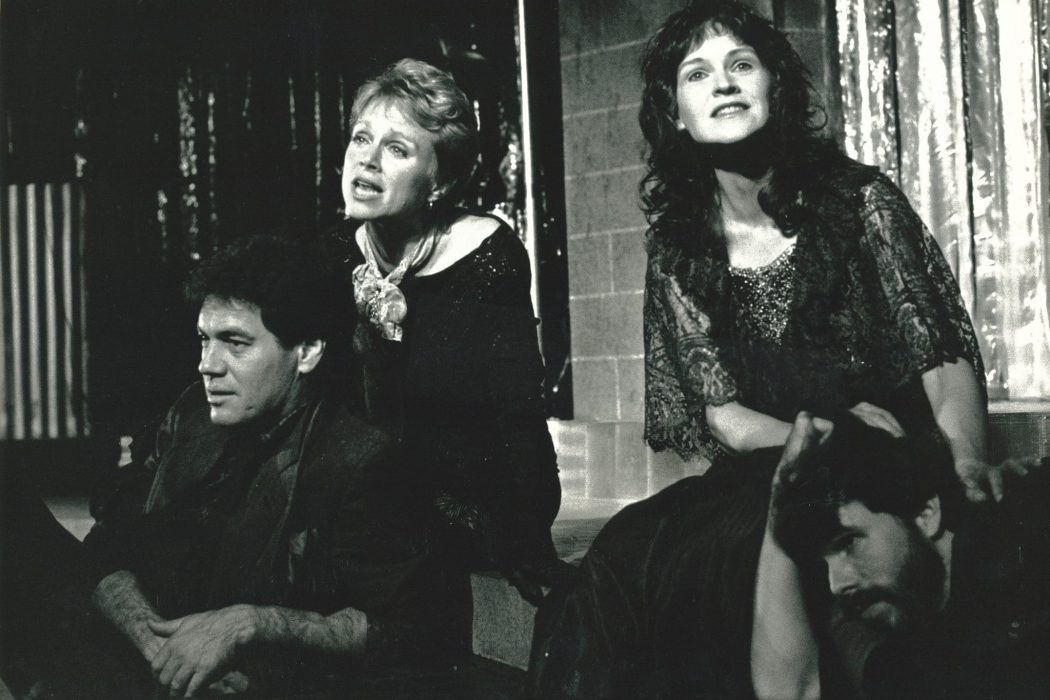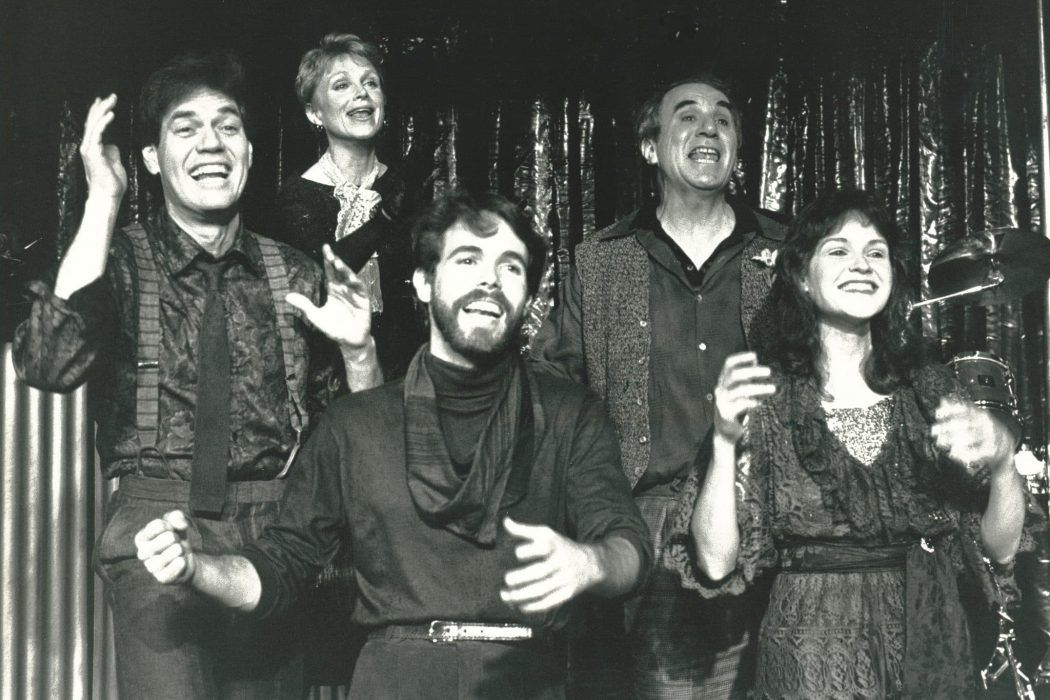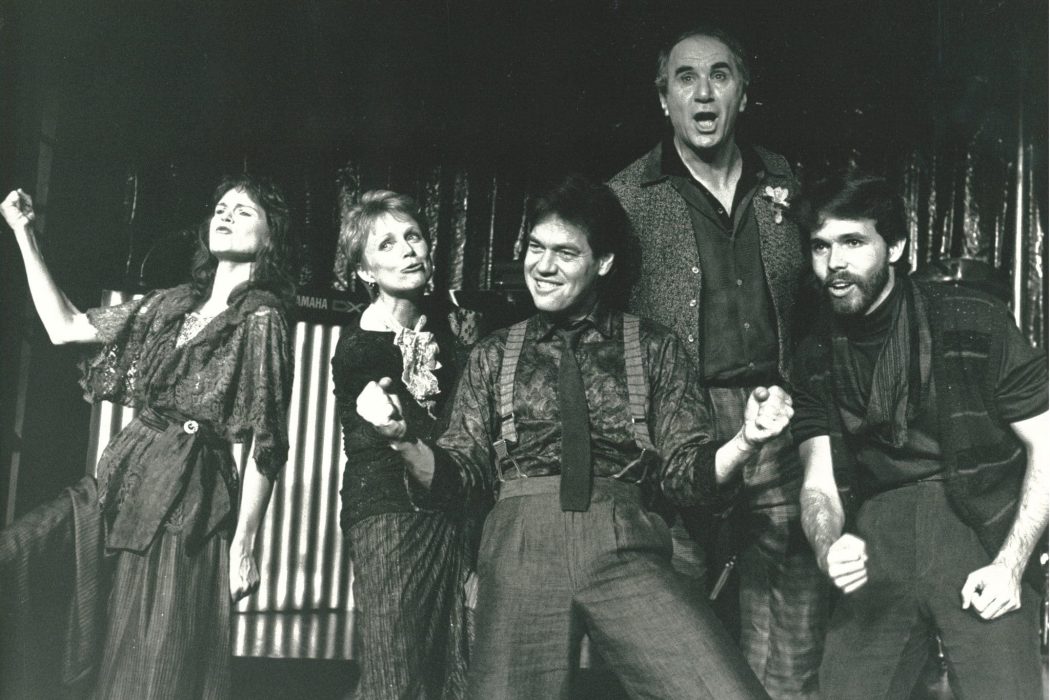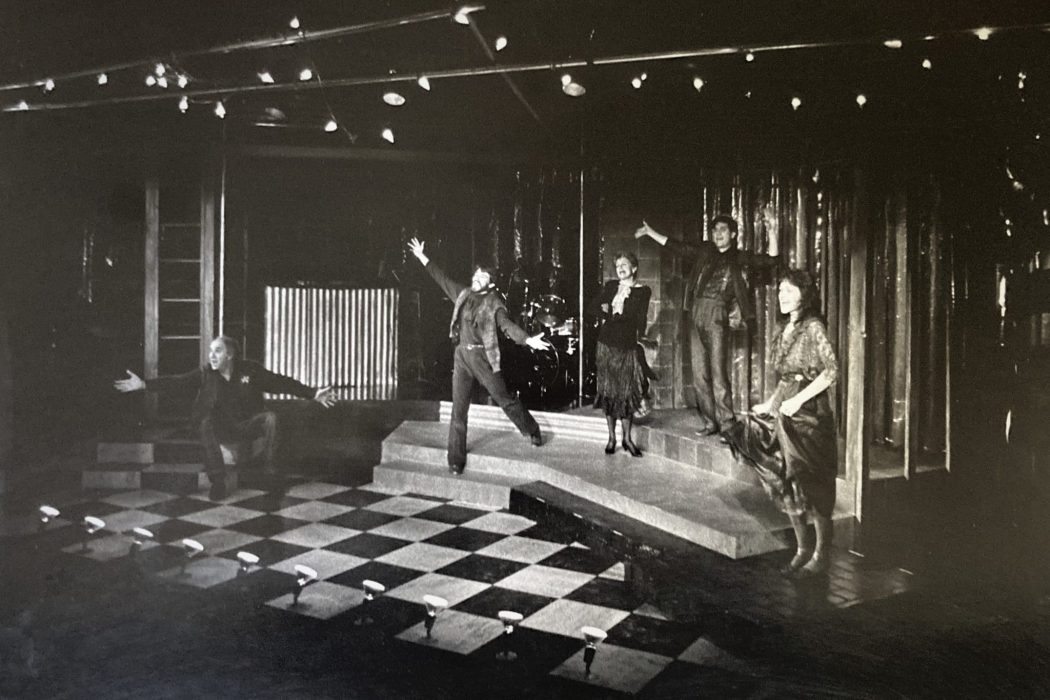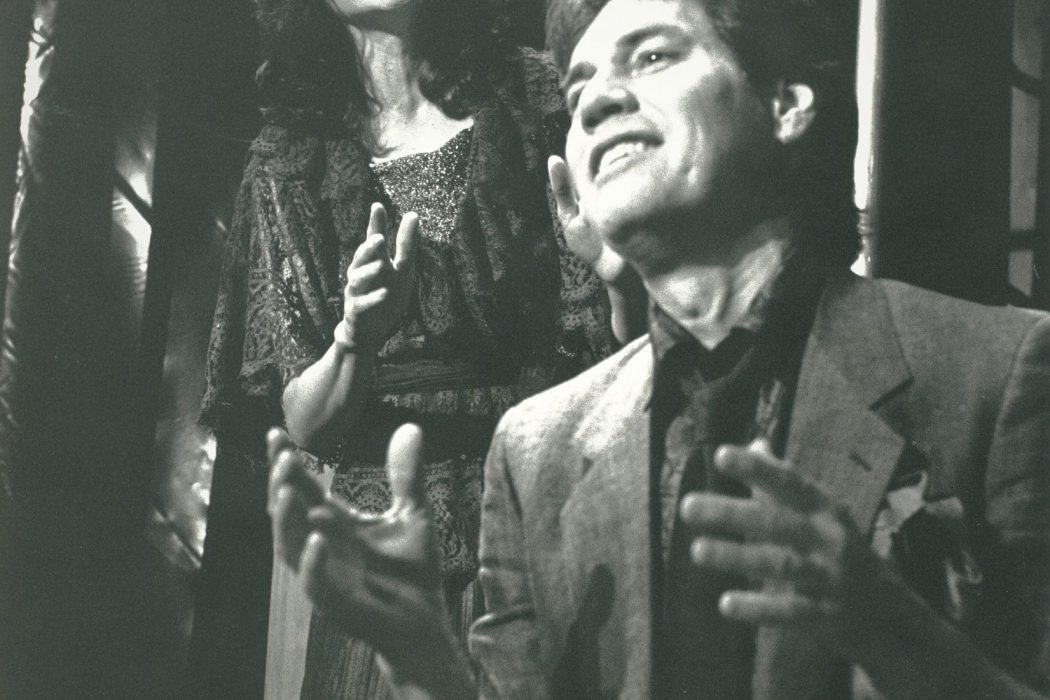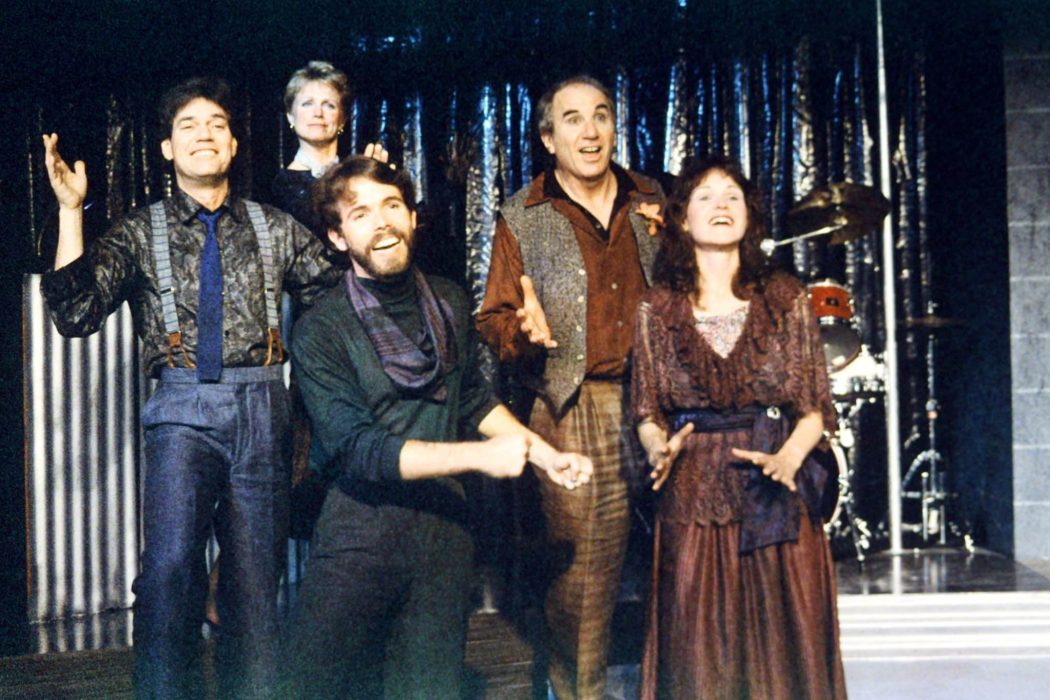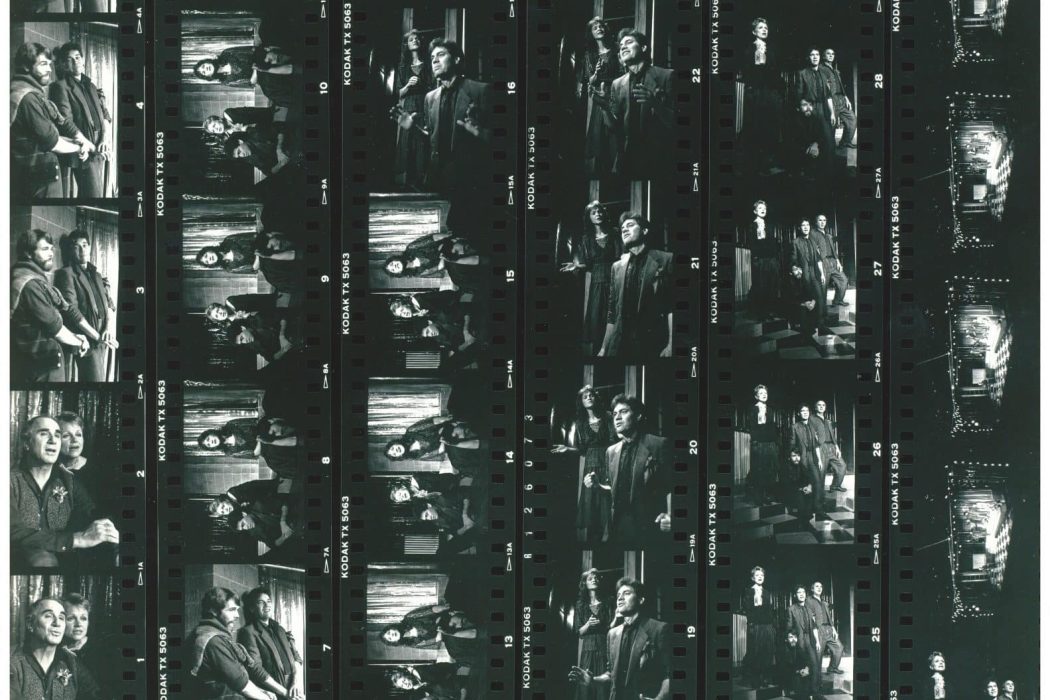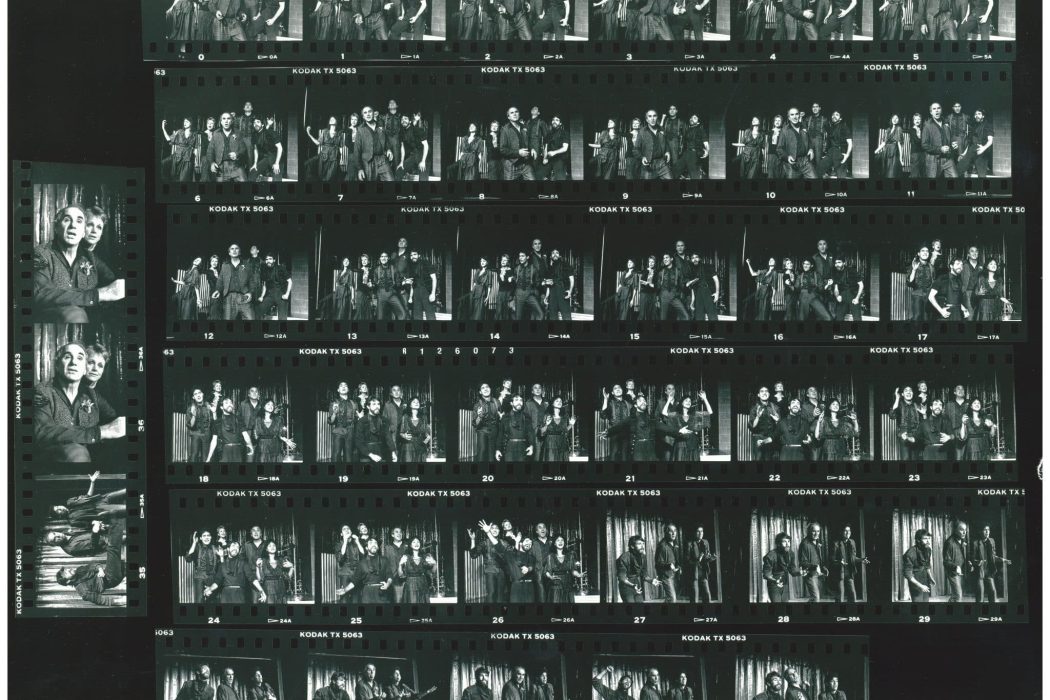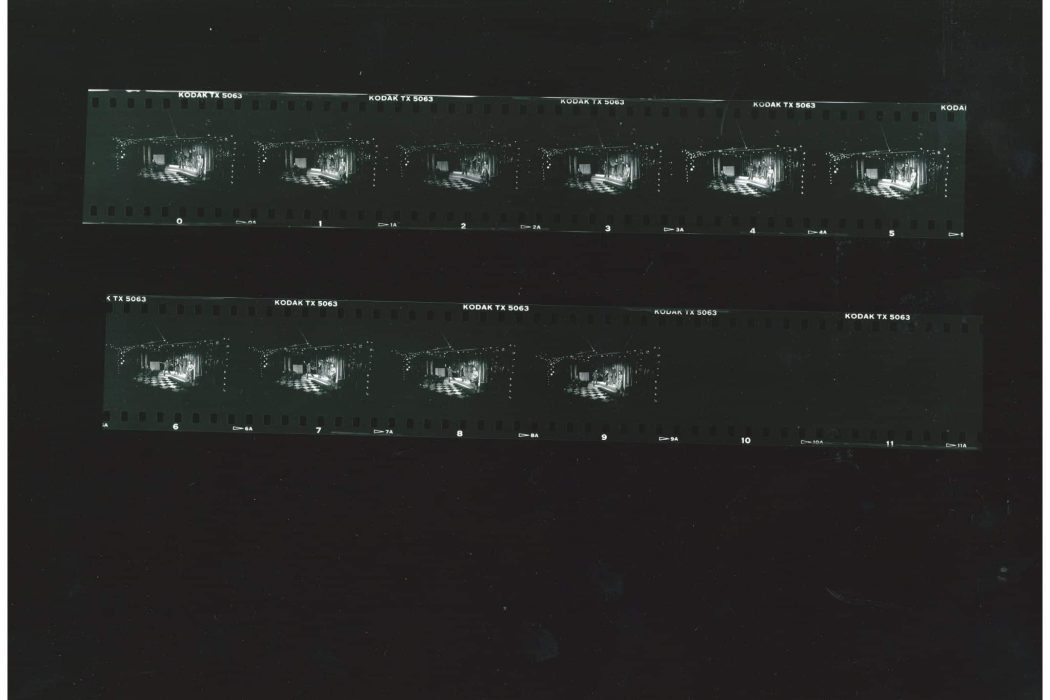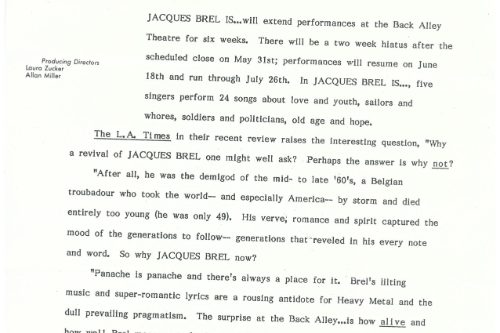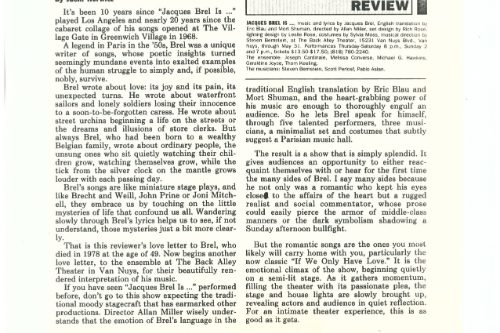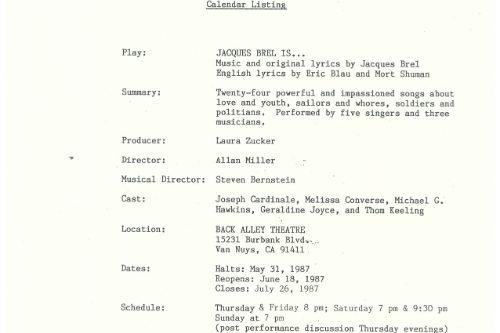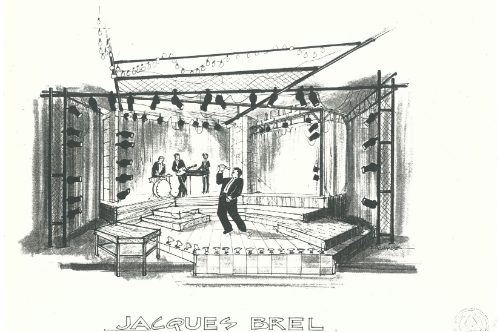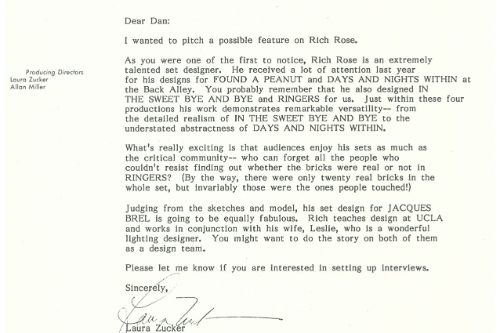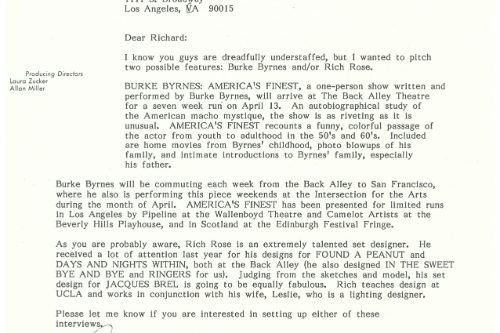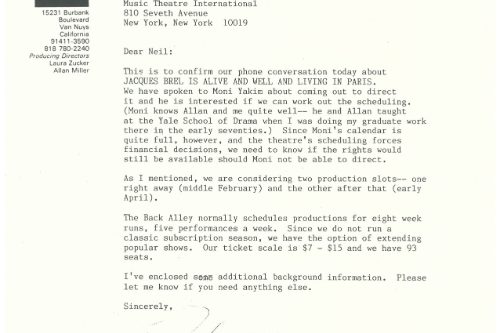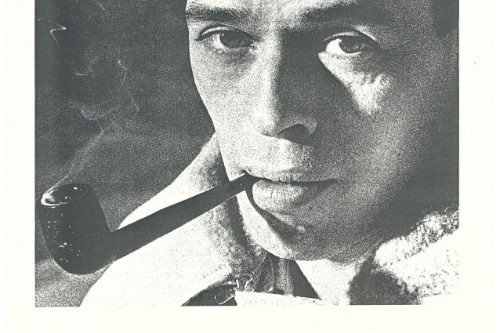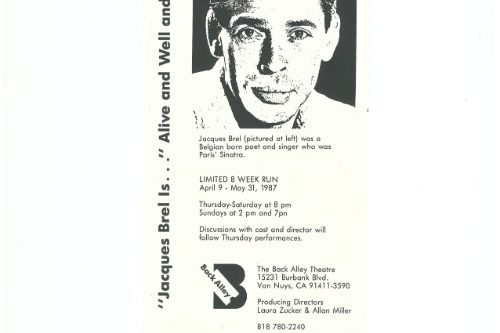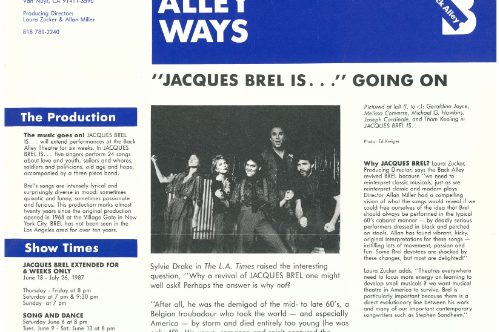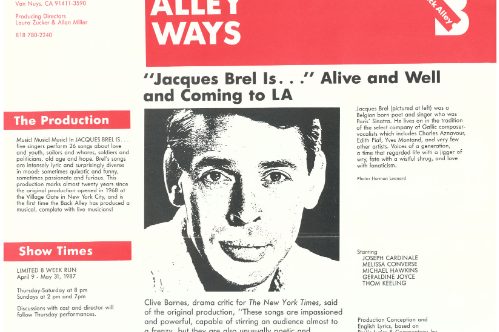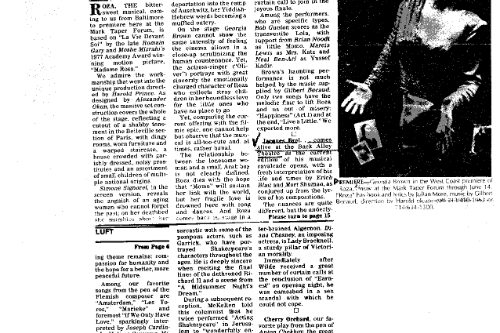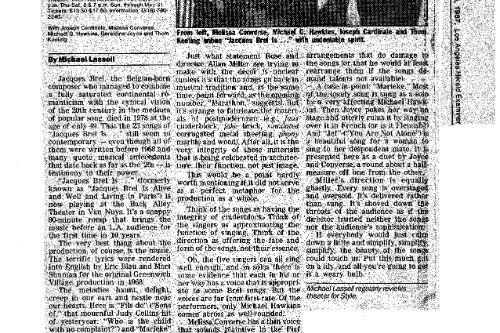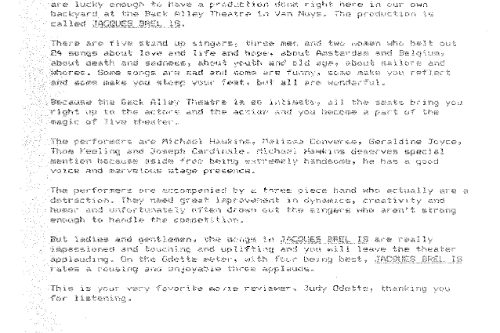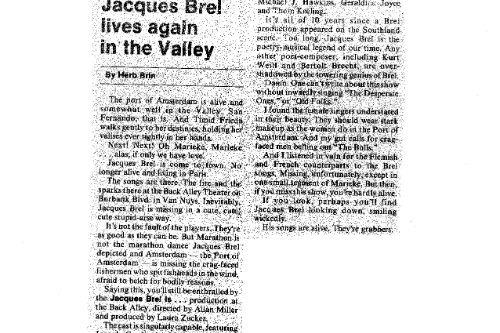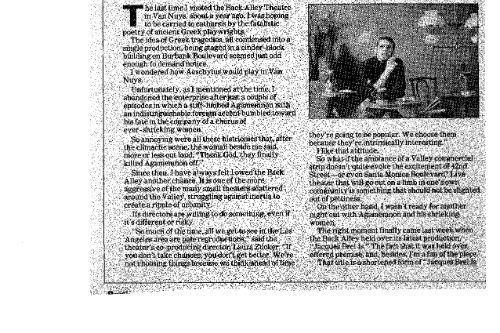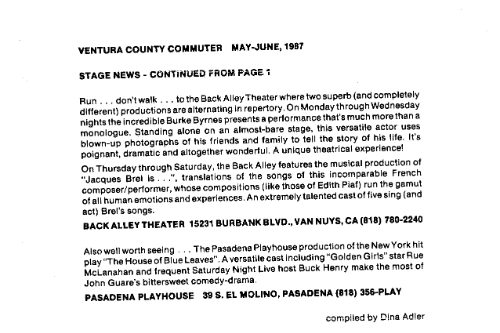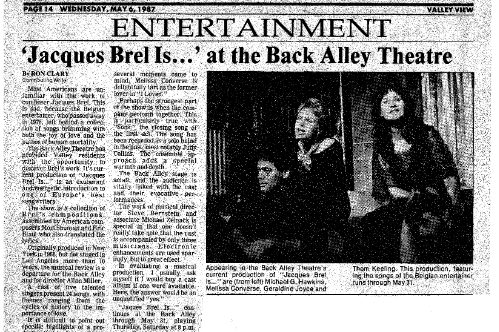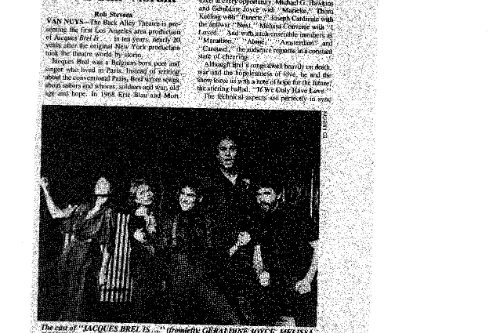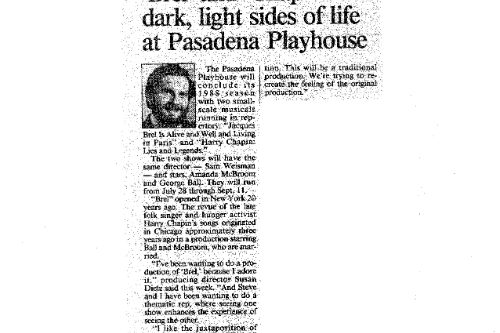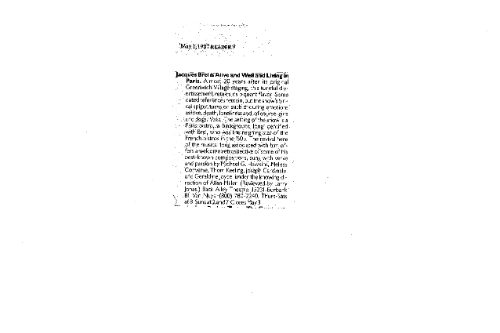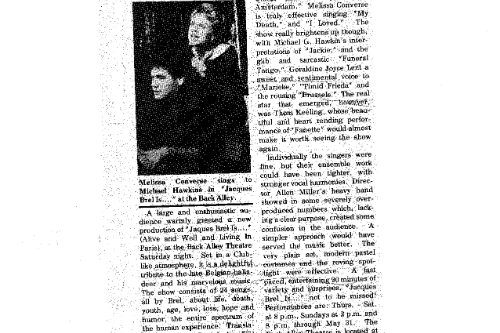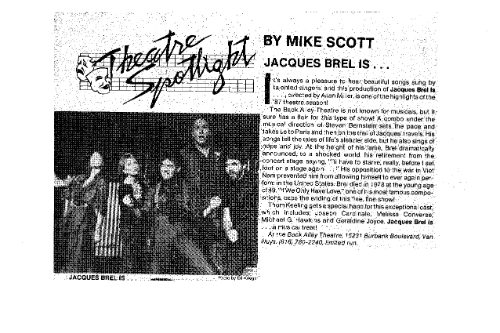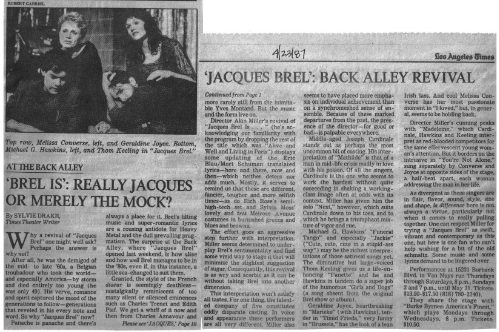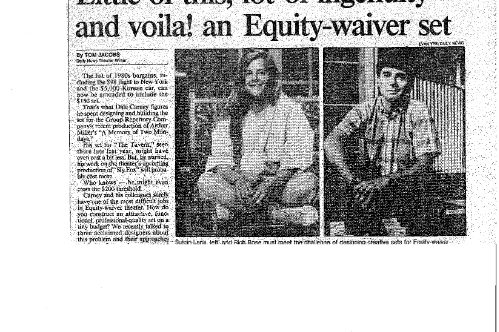Introduction
JACQUES BREL IS ALIVE AND WELL AND LIVING IN PARIS, a compilation of his songs translated by Eric Blau and Mort Shuman and performed by four singers, first premiered at the Village Gate in NYC, directed by the great Israeli movement artist Moni Yakim. It ran for four years.
We revived it almost twenty years later at the Back Alley in 1987, shortened the name to JACQUES BREL IS…, used three live musicians and five actors singing 24 songs that we described as being about, “love and youth, sailors and whores, soldiers and politicians, old age and hope.” It was our first production of a musical. We tried to work it out so that Moni, who we knew from our time at the Yale School of Drama, would direct, but schedules didn’t mesh. Allan ended up directing it in a completely re-conceived production.
The LA Times in their review raised the question, “Why a revival of JACQUE BREL one might ask? Perhaps the answer is why not? After all, he was a demigod of the mid-to late 60s, a Belgian troubadour who took the world—and especially America—by storm and died entirely too young (he was only 49). His verve, romance and spirit captured the mood of a generation to follow—generations that reveled in his every note and word. So why JACQUES BREL now?
Sylvie Drake’s answer: “Panache is panache and there’s always a place for it…the surprise at the Back Alley…is how alive and how well Brel manages to be in the 1980s.”
Allan had never directed a musical before but he was no stranger to interpreting songs in new and interesting ways. After all, he’d coached Barbra Streisand from the time she was a teenager through the opening of FUNNY GIRL. In fact, his work with her on re-imagining the approach to “People” kept the song from being cut from the show. To this day, he often has actors use the lyrics from songs in place of monologues for work. Allan had a compelling vision of what the songs could reveal if we could free ourselves of the idea that Brel should always be performed in the typical 60s cabaret manner, by deadly serious performers dressed in black and perched on stools. Allan found vibrant, kicky, original interpretations for the songs, instilling lots of movement, passion and fun. Some Brel devotees, and reviewers, were shocked by these changes, but most were delighted. The show was extended.
I’m quoted at the time as saying “we need to learn to reinterpret classic musicals, just as we reinterpret classic plays. Theatres everywhere need to focus more energy on developing small musicals if we want musical theatre in America to survive. Brel is particularly important because there is a direct evolutionary line between his work and many of our important [then] contemporary songwriters such as Stephen Sondheim.” And here I am 2023 on the board of The Music Man Foundation, which funds an initiative to keep Meredith Willson’s work alive through seed-funding new projects based on his classic work. The need for this work goes on!
–Laura Zucker


